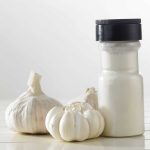The thought of pineapple juice alone can take you to the tropics. But can gluten-sensitive individuals freely enjoy it?
Pineapple juice is regarded as gluten-free if taken from the real juice of pineapples. It only becomes an offender if it gets exposed to gluten from wheat, spelt, graham, licorice, malt, rye, and other ingredients during processing. We recommend fact-checking.
What do you look for, exactly, and what brands are gluten-free? Discover the answers below!
Is Pineapple Juice Usually Gluten Free?
Pineapple juice from the pineapple fruit is generally and naturally gluten-free when taken from pure pineapples only.
It comes in two different types: unprocessed or minimally processed and processed. Juice that’s not been or minimally processed is your freshly juiced pineapple consumed directly, or one that’s been made ahead and stored in the refrigerator.
Processed pineapple juice is the one you see in cans, jars (along with fruits), or as a concentrate; a thick substance that comes from the juice of the pineapple.
As defined by the FDA Code of Federal Regulations, pineapple juice is the juice taken from the meat or parts of (without the core) sound and ripe pineapple through a mechanical process.
Processed one that’s not concentrated is referred to as “pineapple juice”, while a concentrated form is called “pineapple juice from concentrate”.
Both undergo a type of heat treatment like sterilization. The same goes for the container where the juice will be stored be heated before being packaged. This can take place before or after sealing to prevent spoilage (source: FDA Code of Federal Regulations).
So, what’s the difference between pure juice and juice from concentrate?
Pure juice is natural and fresh. It is not concentrated, diluted, or its flavor removed. Juice from concentrate, on the other hand, is a concentrated juice that’s been diluted with water.
This means that pure juice comes from pressed fruits that undergo centrifugation, filtration if needed), and pasteurization before being bottled. Juice from concentrate is taken from a juice concentrate.
To make a juice concentrate, water and the juice’s flavor are isolated and later added at the site where the juice is to be made (source: Rabenhorst).
This means that among the two, juice from concentrate is likely to have more possible exposure to gluten because the concentrate and the isolated ingredients have to be separated, and still have to go through several stages.
The reason why a concentrate is preferred by manufacturers is that it doesn’t weigh much and therefore costs less. This can happen to pineapple juice, especially imported ones from the tropics.
When buying pineapple juice, what you want to look for in the ingredients list are gluten, wheat, spelt, graham, licorice, malt, rye, and others on this list. These are gluten-containing ingredients.
Moreover, look for any indication of where the juice is processed. Pineapple juice is not likely to be processed in a facility that also processes gluten. If the label says, “Produced in a facility that also processes wheat”, then you should put that back on the shelf.
Brands of Pineapple Juice that are Gluten Free
Some juice manufacturers put a “gluten-free” or “no gluten” label on their products while others don’t. This is because, in the US, they are not required to. Moreover, pineapple juice is generally gluten-free.
Here are some of the most popular brands and their gluten status:
Dole
Although not according to their official website, Dole is a brand renowned for making gluten-free products (source: Verywell Fit).
Their pineapple juice doesn’t have the “gluten-free” label on the packaging. It also seems that their 100% pineapple juice not from concentrate is gluten-free while the from concentrate version is not described as so (source: Walmart).
Minute Maid
Minute Maid doesn’t have pure pineapple juice, but rather, a pineapple and orange juice blend. According to their website, their 100% juice products, those that have no added ingredients, are gluten-free.
In this case, since this is a juice blend, they recommend reaching them directly to know the gluten-free status of this juice blend (source: Minute Maid).
Tropicana
A representative from Tropicana stated that their products are naturally gluten-free (source: Verywell Fit). Like Minute Maid, Tropicana doesn’t seem to have pineapple juice, but a blend of it with other juices. There’s also no gluten-free label on the packaging.
Libby’s
Libby’s all-natural 100% pineapple juice is gluten-free, and you can see a gluten-free icon on the product packaging.
Golden Circle
Golden Circle is an Australian brand of fruit juice. They don’t mention gluten on their website or their products. Their pineapple juice doesn’t have a gluten-free label and not much information about it is available.
Del Monte
In the US, Del Monte pineapple products come in tidbits or chunks of pineapple. However, you can find their pineapple juice in some Asian supermarkets. They don’t indicate that it is gluten-free and there is no gluten-free label on the packaging.
Great Value
Great Value 100% pineapple juice is a Walmart brand. They don’t mention it being gluten-free, nor does it have a gluten-free label on the packaging (source: Walmart).
Some brands put emphasis on the gluten status of their products so gluten-sensitive individuals are aware. Other brands don’t.
Apart from checking the packaging and the ingredients list, we still recommend fact-checking on your part, and calling the manufacturer if necessary, regarding the gluten status of their products. We hope you found this article helpful!
Moreover, as you explore the world of gluten in fruit juices, why not delve deeper by learning about the gluten-free status of various fruit juices? Discover more insights and tips in our resourceful guide that covers this topic in detail.








Comments are closed.